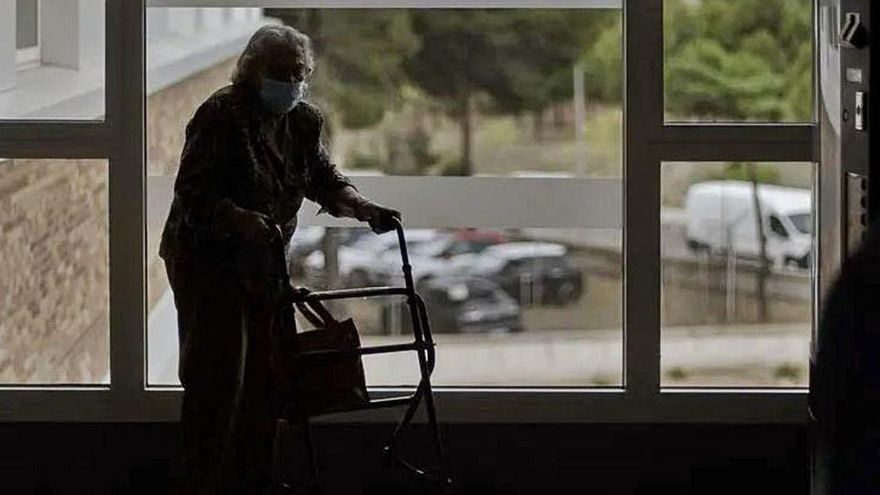
According to the centers’ own information, “medical visits are almost a year apart and, in the event of an acute episode, only emergency professionals attend “, reads the report, noting that the medical care that residents receive “is not real or commensurate with the needs of the elderly“, Add. “The shock caused by finding this lack of hygiene and sanitation in the centers is indescribable., without being detected by the administrations in charge of inspecting and ensuring the functioning of the resources for the elderly, and, in turn, without being revealed by relatives or other people who access the facilities. We appeal to the social responsibility of working for a minimum well-being of the elderly “, states the report of the Diputación del Común.
The interviews were scheduled randomly, with the mere criterion of attending centers on different islands with different numbers of places in order to maintain proportion and equity. The visits were not arranged, without prior agreement with the persons responsible for the centers. Despite sending letters to more than 80 centers, the pandemic shattered expectations and they were only able to investigate 25. “While some residential resources have shown careful collaboration, in others there have been moments of absolute contempt for the work carried out “, the Deputy goes on to say in the report, that she was” invited to leave “one of the residences that he visited in Tenerife.
According to the report, medical visits occur from year to year, mercantile contracts, elderly people tied to their beds without protocol that regulates it, total absence of privacy and of inspections and even kitchens with open spaces used, literally, “as dump of the own waste from those kitchens”.
Lack of response from Social Rights
Despite the fact that the County Council sent him at the end of 2018 (December 17, 2018) eighty-six letters to care centers for the elderly that appear in the public registry of centers and services of the dependency system of the Ministry of Health. Employment, Social Policies and Housing, current Ministry of Social Rights, Equality, Diversity and Youth, communicating the foreseeable visit during 2019, were returned, for an unknown reason. A brief, dated October 25, 2019, was later sent to the Vice-Ministry of Social Rights, requesting “the list of residential care centers for the elderly and accreditation date, the list of public residential care centers” as well as the number of visits to residential care centers for the elderly during 2018 and 2019, agreements signed with other administrations, the claims, complaints and suggestions of the centers, the resolution of each one, the infractions and / or sanctions against centers for the elderly, but there was no response. Before this, on August 29, 2020, With the interest of integrating in this report the work developed by the Ministry of Social Rights, Equality, Diversity and Youth, the request was reiterated, Until the date of publication of this report, no reply has been received.
The silent Parliament
These data collected by the lawyer Milagros Fuentes and the team of the Diputación del Común It has been in the hands of Parliament since November and yet they have not even given the Common Council a date to present it in the Chamber. “Bathrooms with obvious signs of dirt, two outbreaks of scabies, bed bug infestations on mattresses, dining rooms with food scraps for hours, cigarette butts piled up on the doors, “the report details.
The Diputación del Común also denounces in this report a total lack of privacy and a low level of inspections. It also details terrible scenes like seniors in single file in narrow hallways to access dining rooms, -some with leftover food more than an hour-. “People who eat alone, in a corner of the room, without interaction and with their backs to the rest of the activity in the center, people who stay with food scraps stains, without changes of splattered clothes for the rest of the day“says document. Humidity in rooms and even kitchens with open spaces used, literally, “as a landfill of the own waste of those kitchens “.
The use of restraint elements in the care and care of people has the obligation to preserve the fundamental rights of freedom, the right to autonomy, as well as respect for human dignity. “In the Canary Islands, unlike other communities, there is no regulation on the use of restraints, there is not even a consensual protocol of procedure”explains the report.
“Most of the rooms are for shared use,” the report also explains, noting the lack of privacy. All centers must have an individual file for each of the residents that, in addition to having all the personal, social and health documentation, contains the individual care plan with the assessment and intervention in individual training. “Five centers show that their files are a mere folder with documentation of the people, without professional evaluations and, therefore, without monitoring and evolution of the promotion of personal autonomy “, says the report.
















